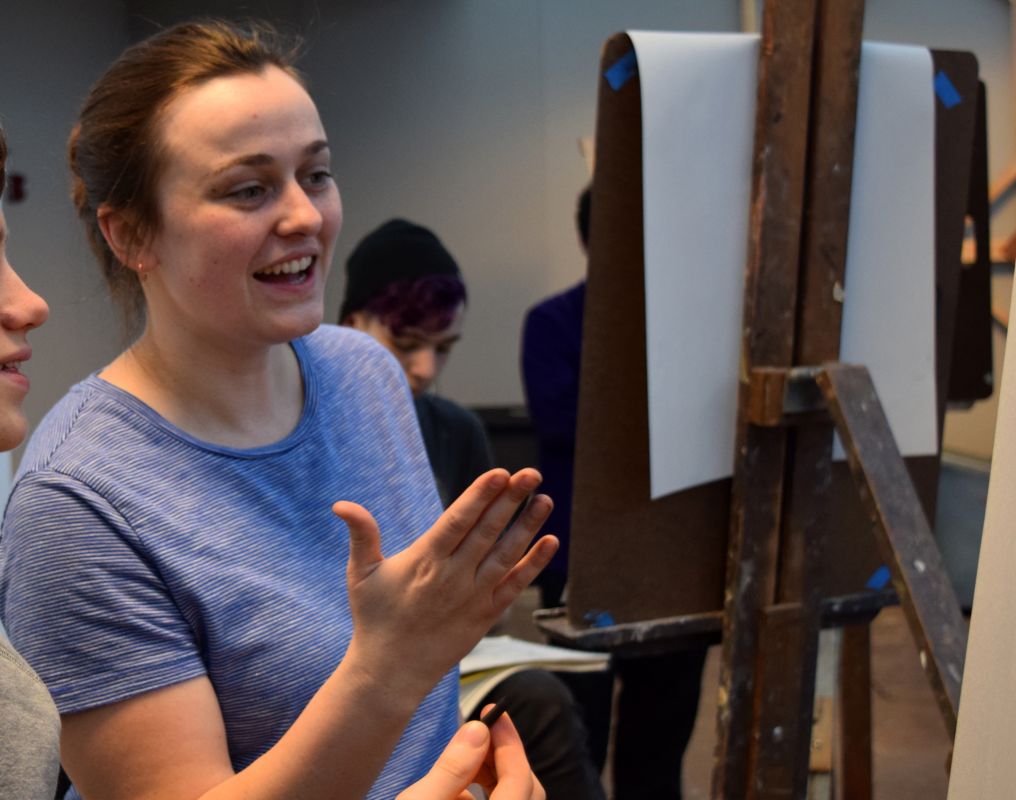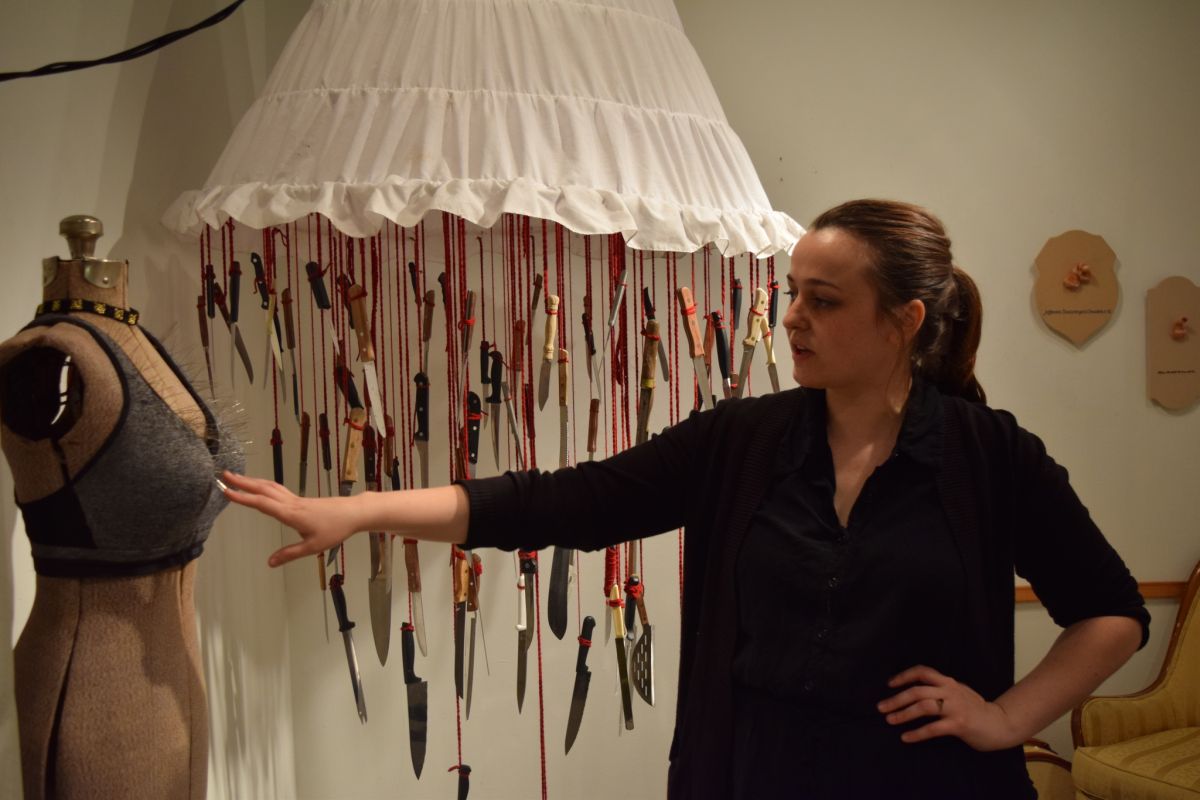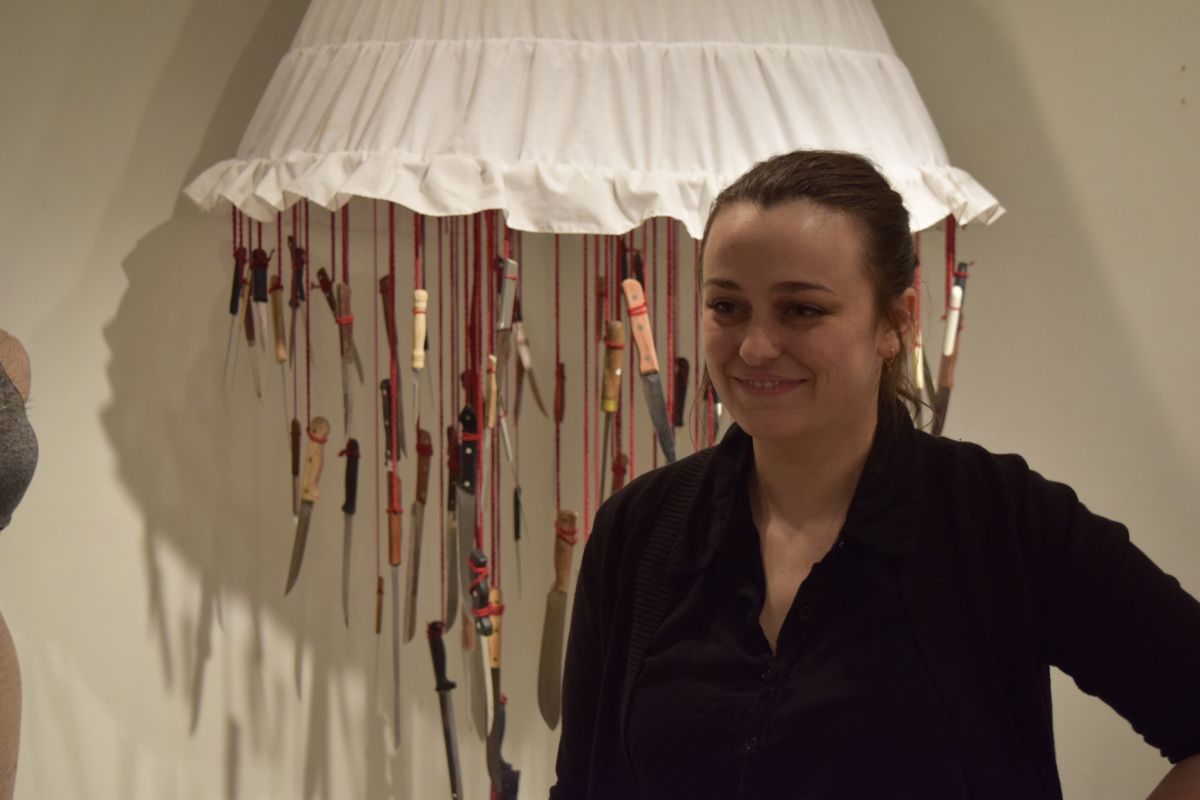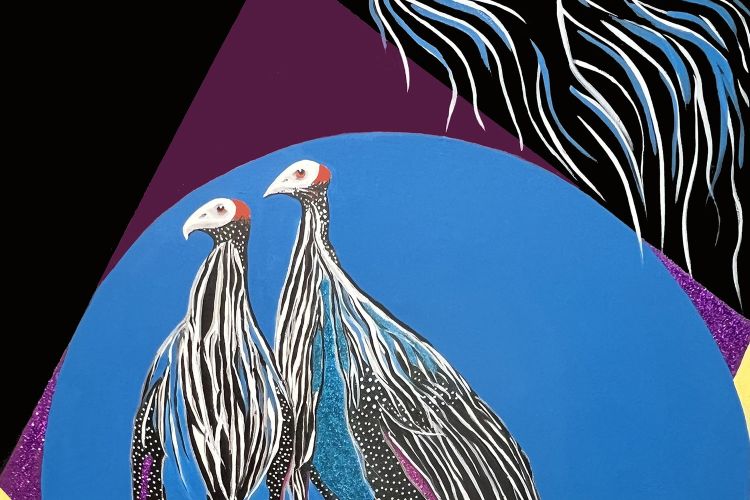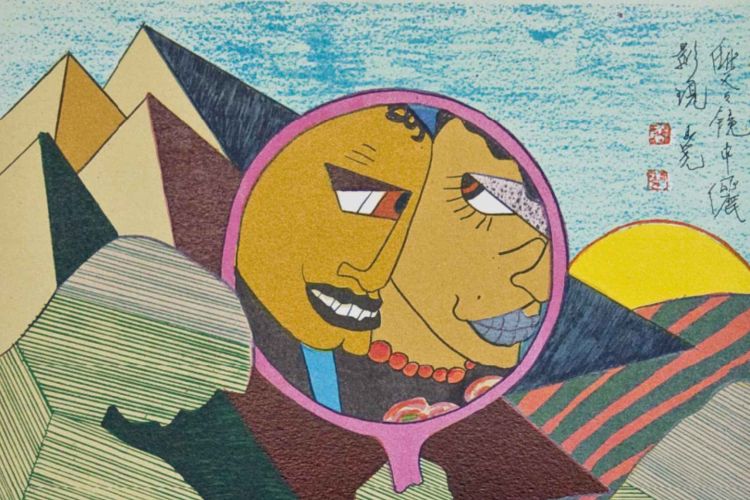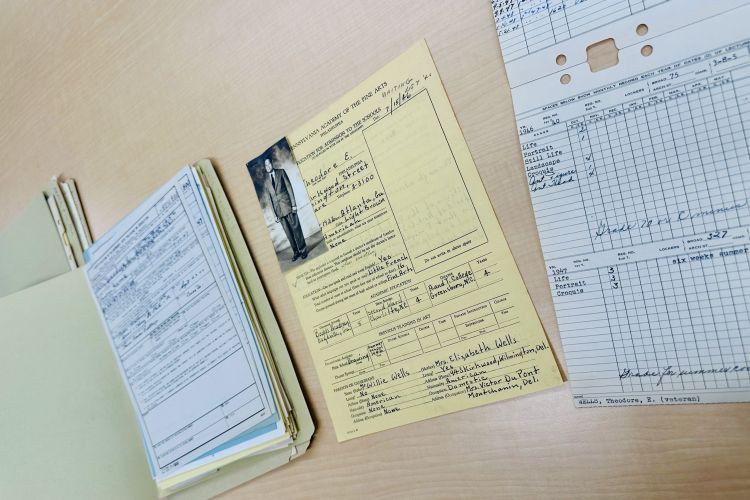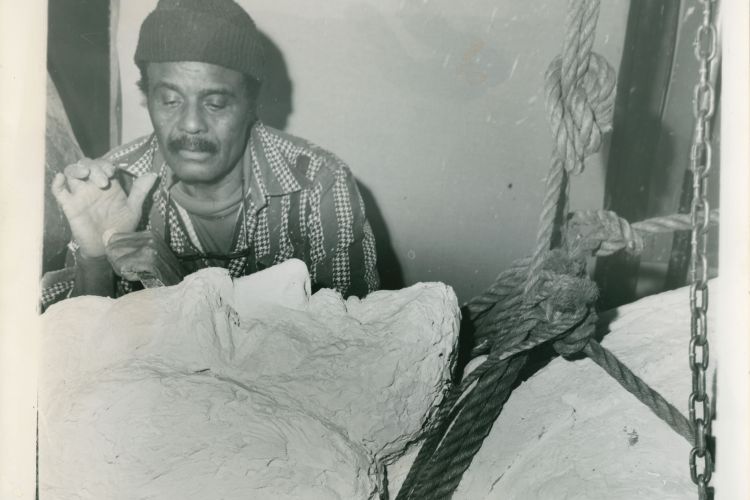STORIES FROM PAFA
Training to Teach at PAFA
Meg Borah (MFA '18) thinks there is more to art than natural talent and ability.
The PAFA MFA student creates prolifically though she admits she'd like to have stronger drawing skills."
“Drawing is a skill you can learn, you don’t have to have talent in it. If you want to work hard enough, you can,” she said. “I’m terrible at drawing and I’ve learned so much. I think it’s like learning how to run 5 miles, you just have to do it and do it until your body can do it. But having really good teachers help.”
Borah hopes to be a really good teacher one day. She spent nine months teaching English and art to children in India.
“One day we went over all the different marks you can make: a dot, a line, a dash,” she said. “Then we did this exercise where we had all of those different shapes and showed the kids a picture of a bird that was made up of all those same shapes just put into the form of a bird.”
Borah always knew wanted to work with art in a community-based position but originally thought maybe she would become a counselor.
“I realized if I could teach anything I wanted to teach art because I love arts and I want to get better at art,” she said. “Instead of teaching kids something I wasn’t very passionate about I thought I should explore my passion and then I can teach people more effectively about my passion.”
A desire to learn and explore led Borah to PAFA. Her art mentor in Illinois introduced her to the academy.
“She taught me everything I know about drawing from a live model and she said this is one of the last schools that will teach me what I need and what I should know.”
In addition to a full course-load of MFA studies, Borah also audits one undergraduate class per semester and has been exploring PAFA’s Continuing Education courses.
“I feel like a lot of undergraduate programs don’t teach you anything anymore,” she said. “I never got the basics of just drawing and painting so I’ve really focused on taking a beginning still life class because I really wanted to make my technical skills better.”
In addition to that schedule, Borah is also teaching through PAFA’s After-School Studio Art Program. The program is free for high school students in the Philadelphia-area, and includes college-level art instruction and free supplies.
She teaches life drawing and says she is learning just as much as her young students.
“It’s nerve-wracking to go up to a student who is drawing and you don’t want to throw off their mojo but I might be able to really help them, but I could do the opposite,” she said. “It’s learning how to balance that and how to approach people, there are specific things you say to get through to people and try not to make thing too complicated.”
The strategies she’s learning in the classroom and in her studio can also be applied to everyday life.
“When you draw something bad it makes you feel really terrible about yourself. So that’s why a lot of people don’t do it. It’s about accepting and working with it. You learn specific strategies and you have to learn to see something through,” she said. “And I think those lessons have really applied to my life outside of art. In dealing with stressful things or thinking about my health and thinking through what kind of base do I need to put down to make this the beautiful thing I want it to be.”
With the after school art program on her resume; she hopes to get a teaching position in Philadelphia.
“Me and art, we have had a rough relationship but it’s always been something I’ve done and cared about I wouldn’t do anything else.”
Learn more about the After-School Studio Art Program for High School Students
